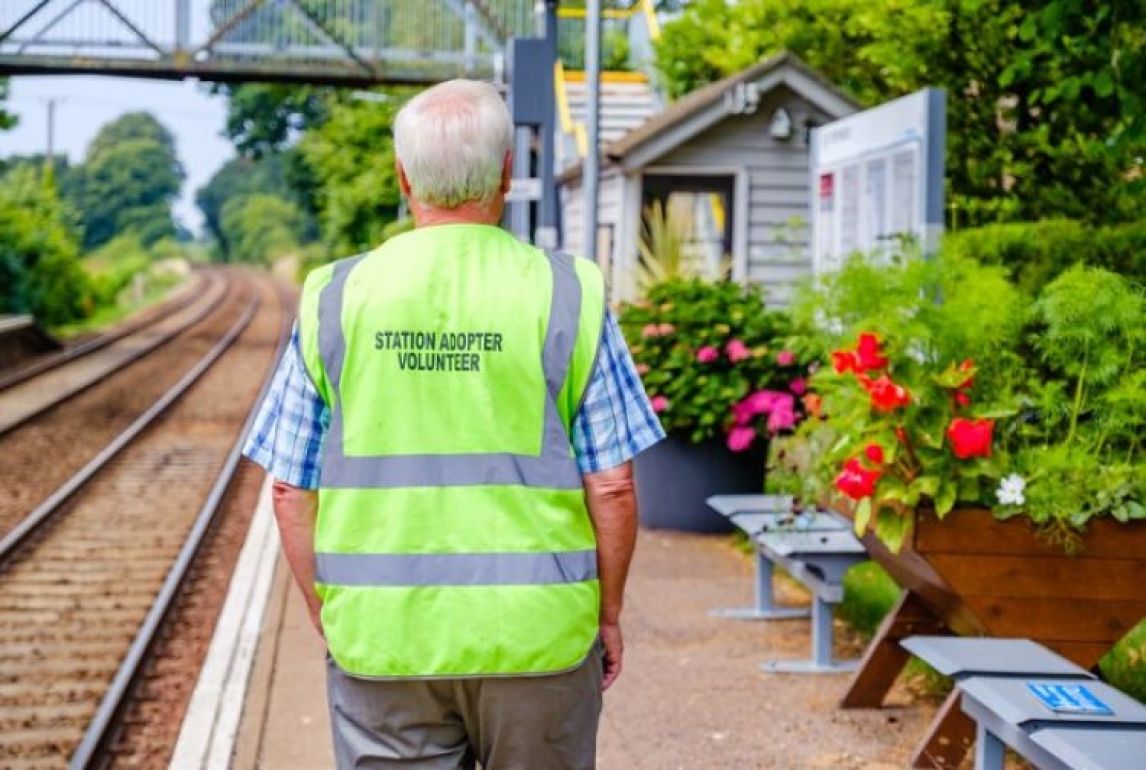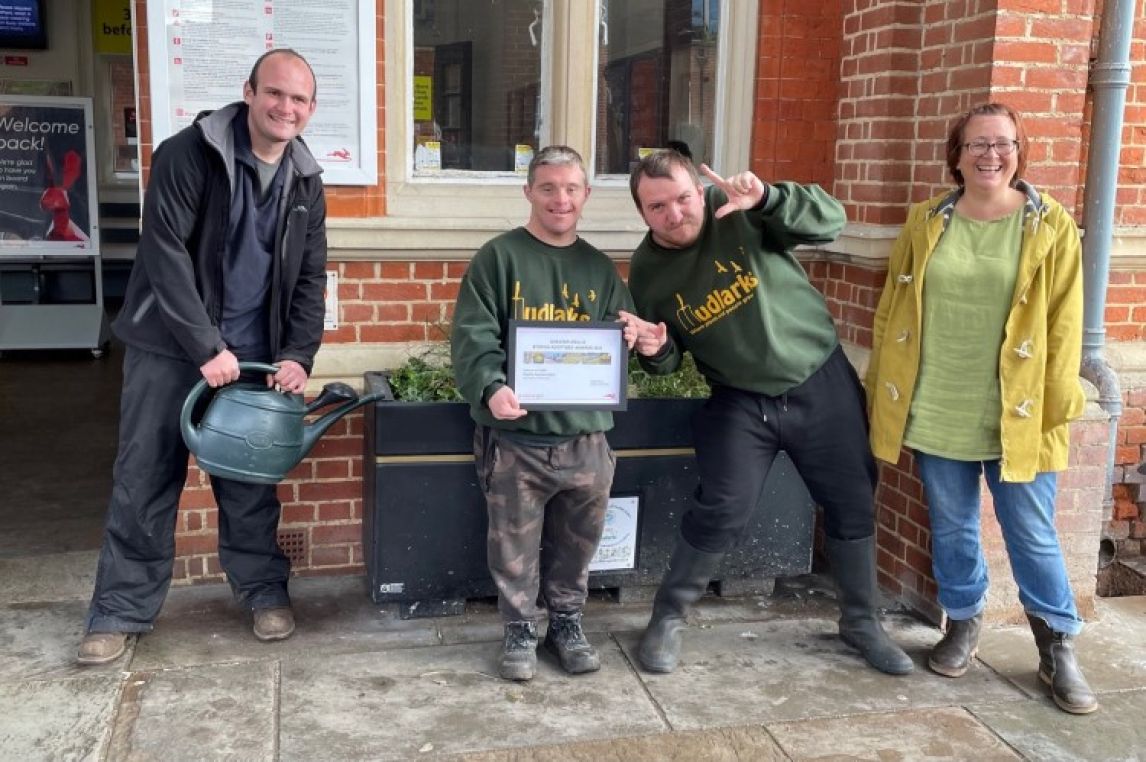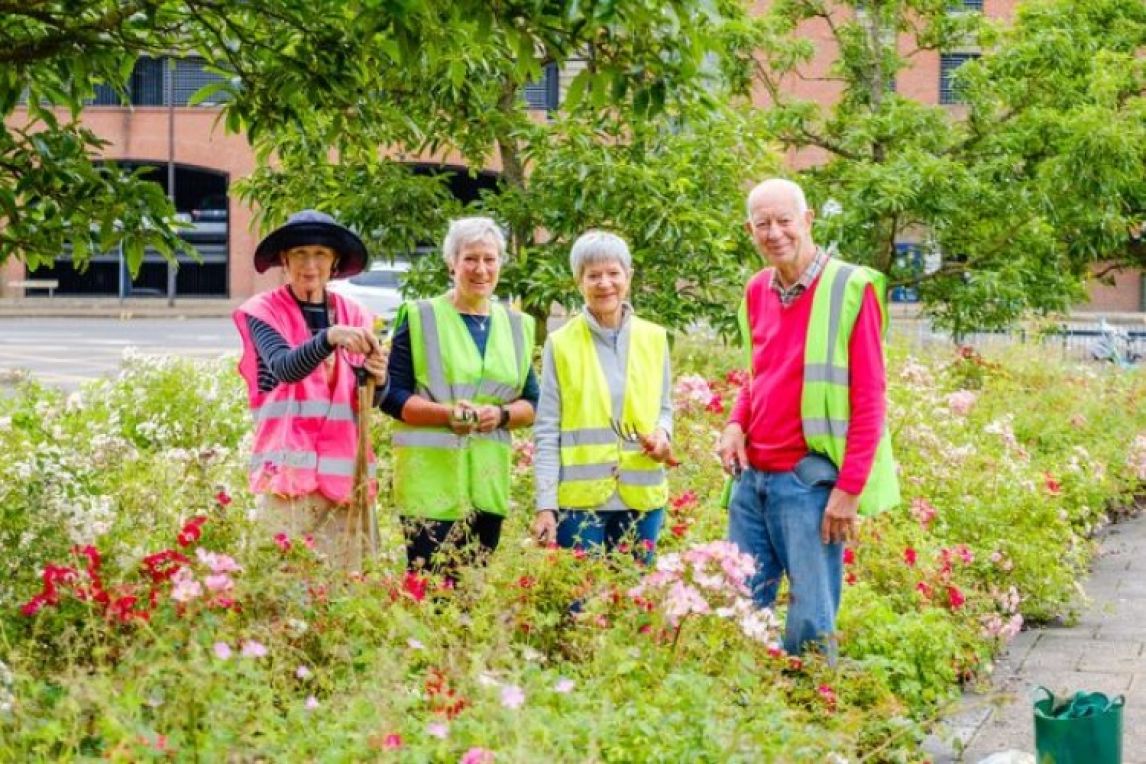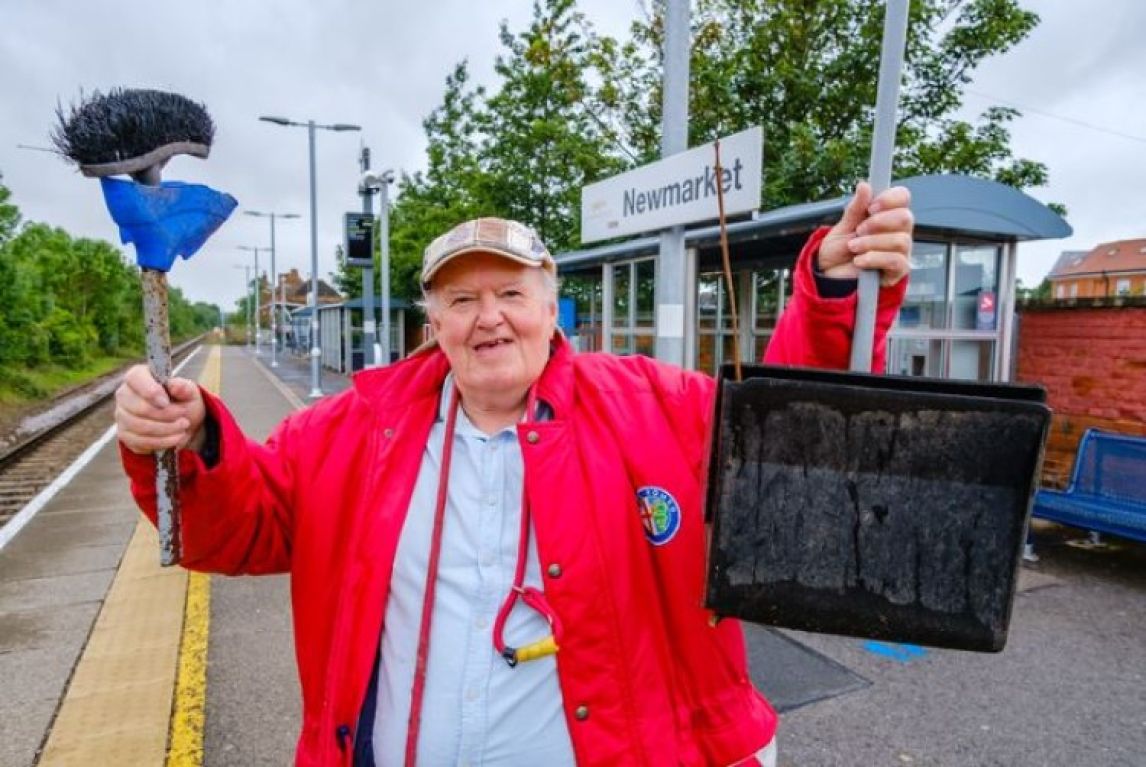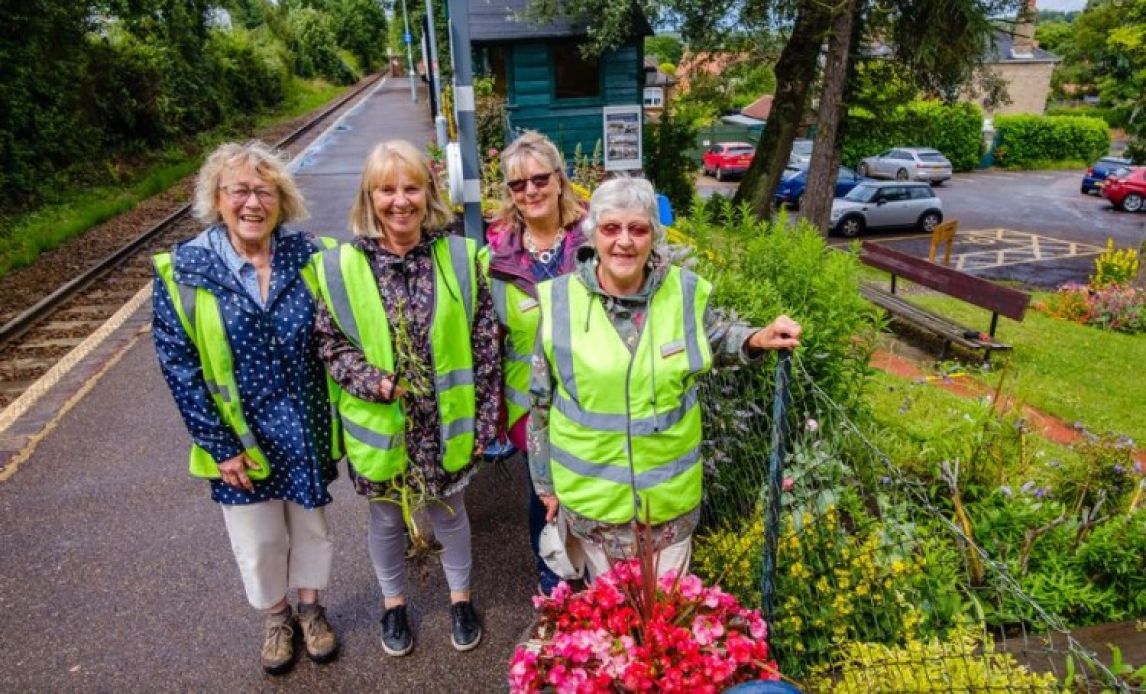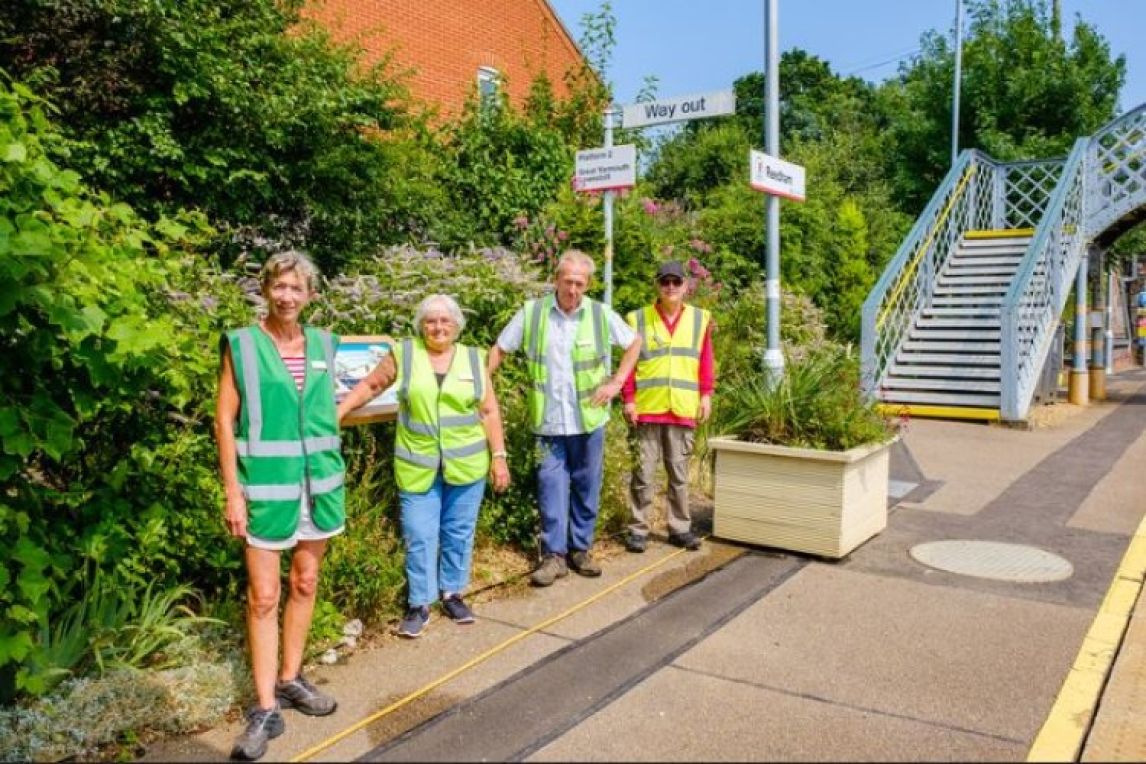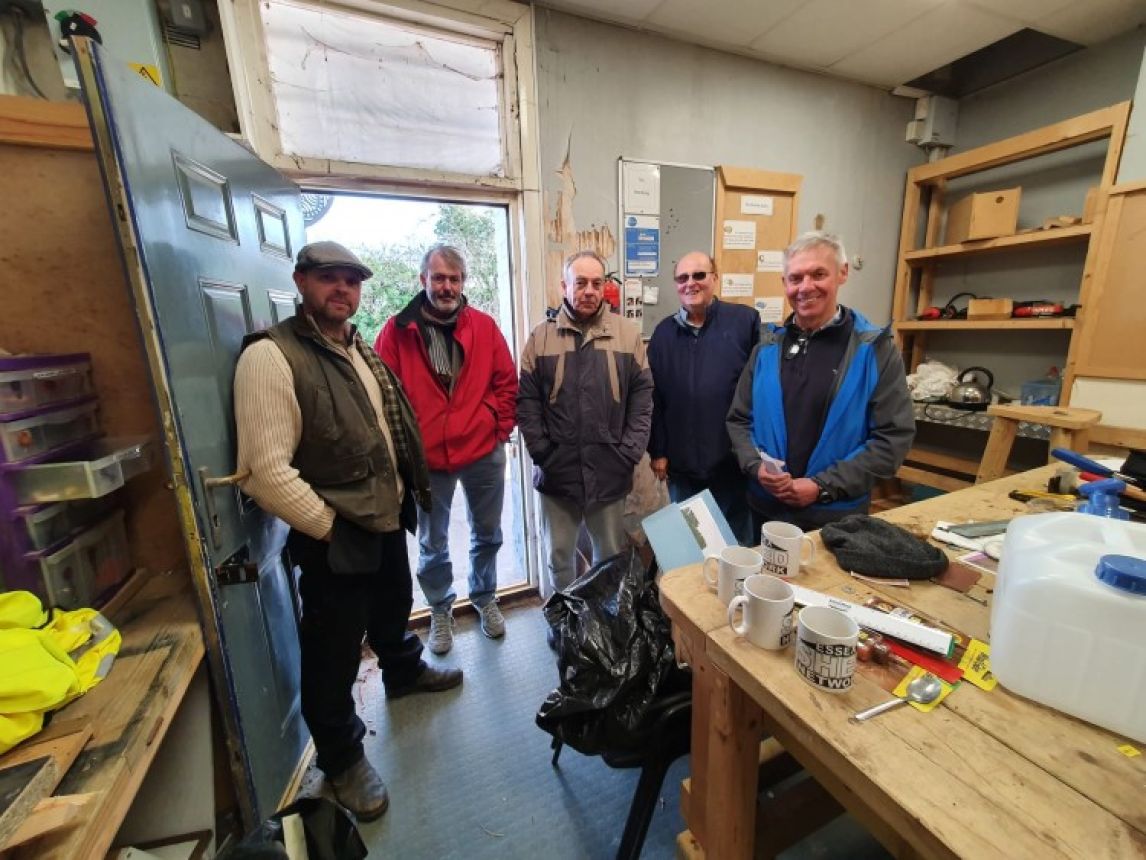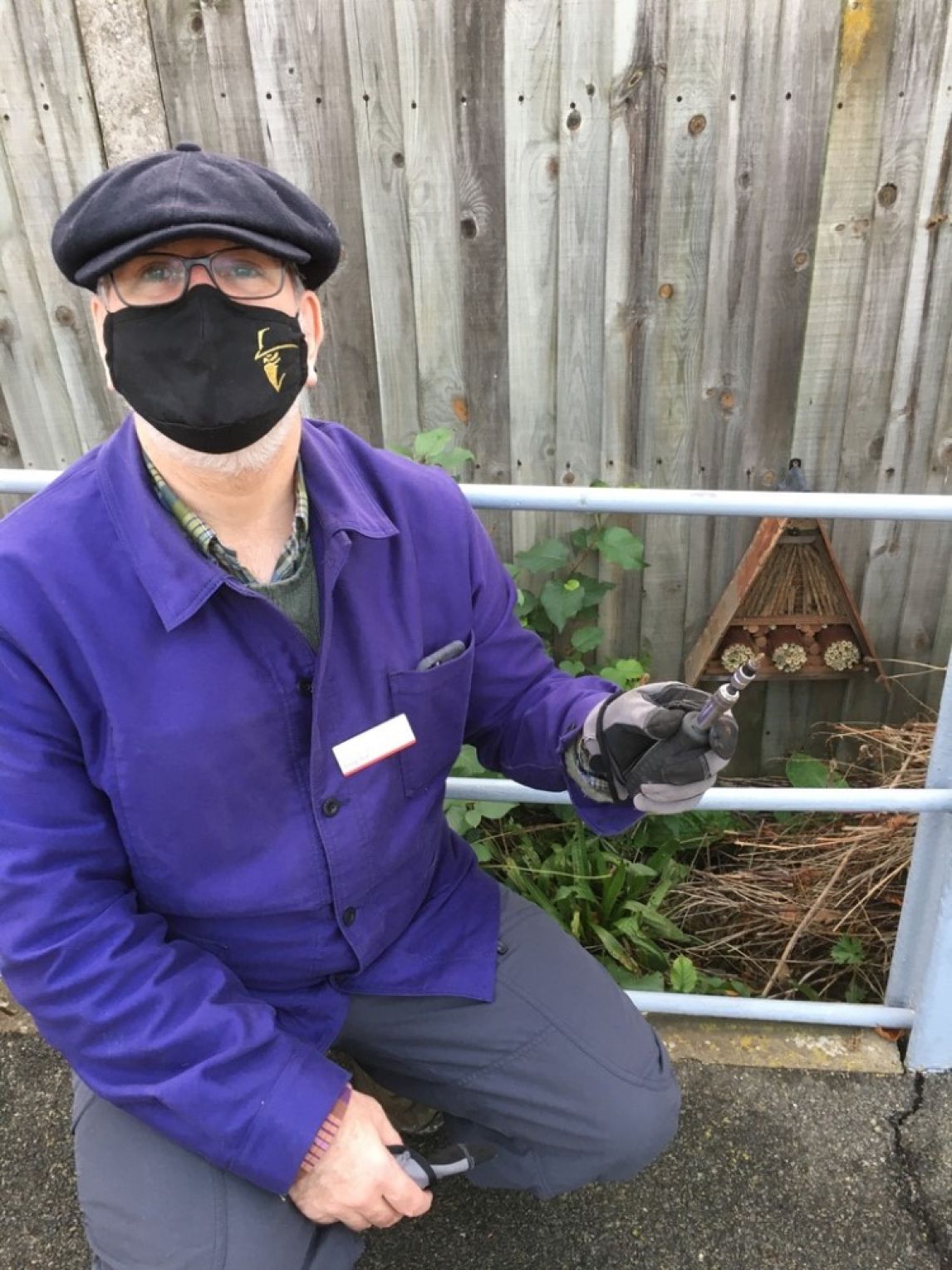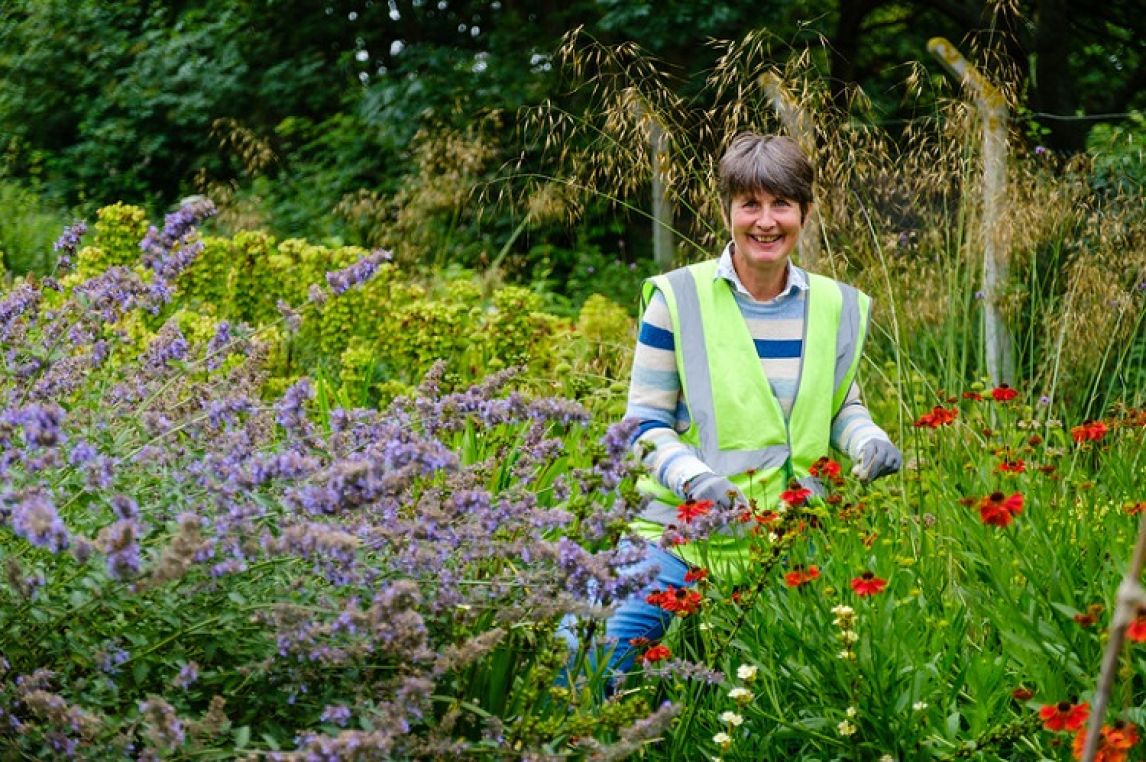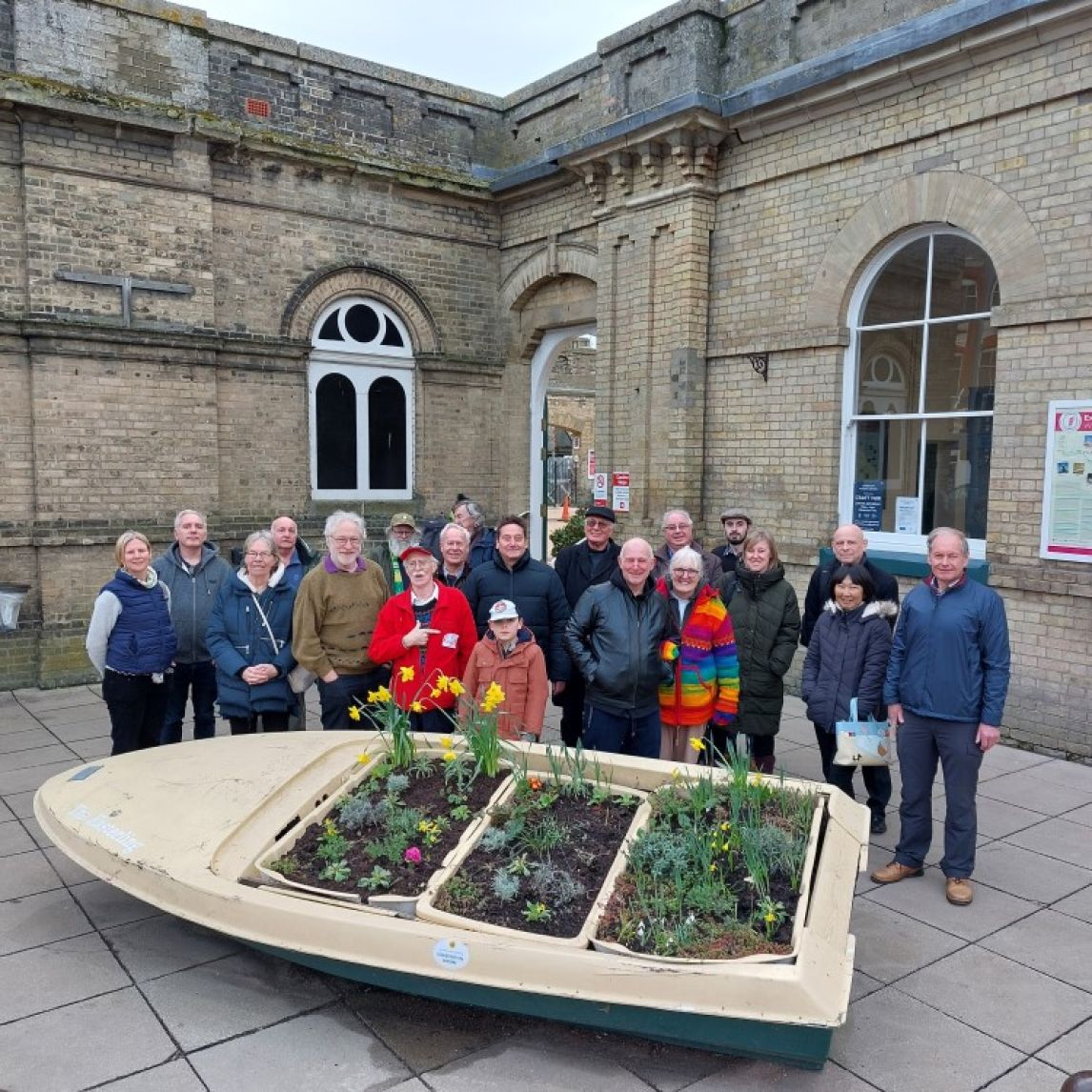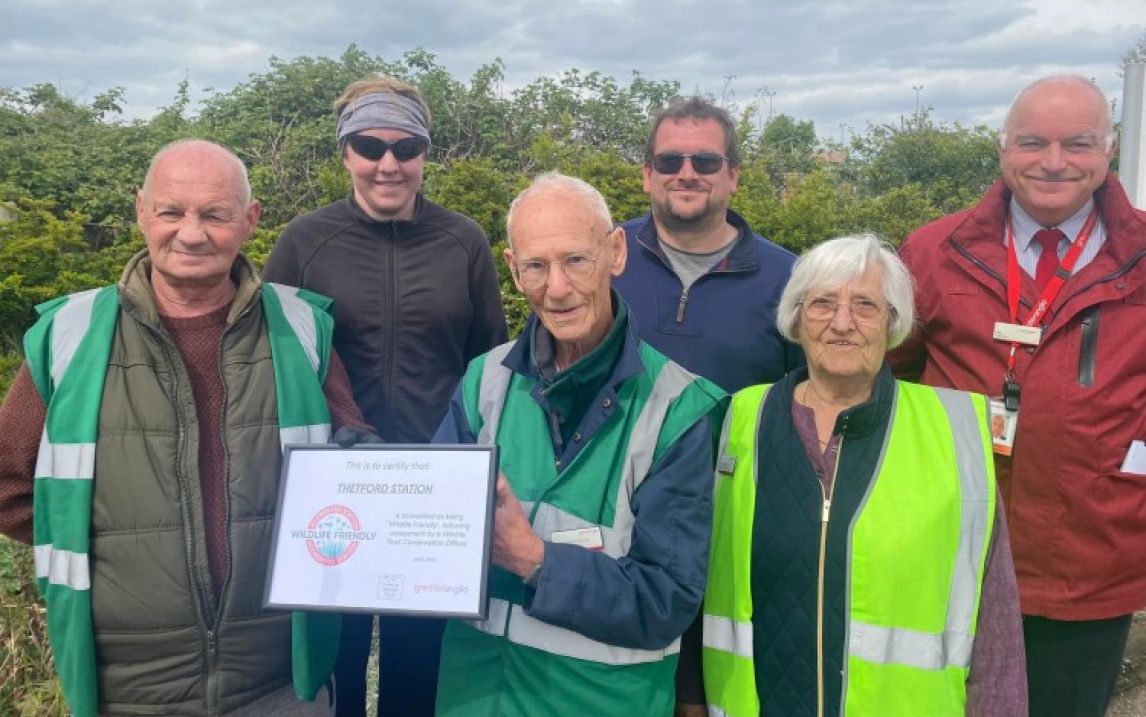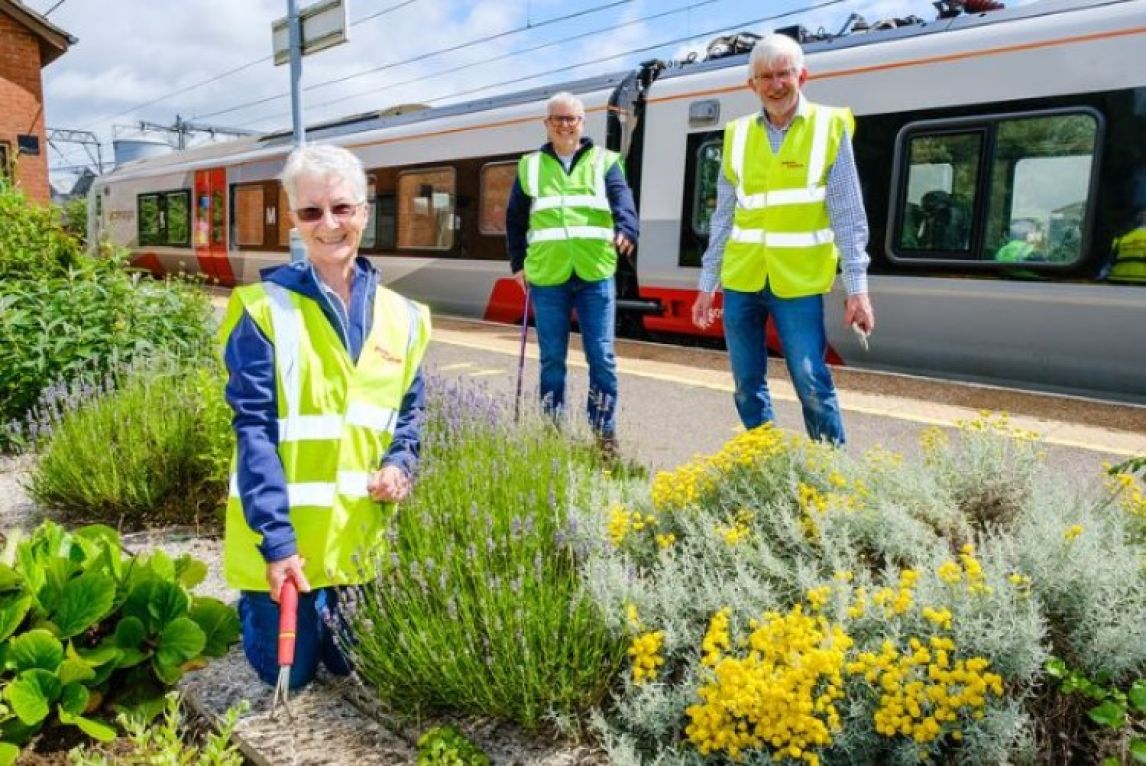Published on: Monday, 13 March 2023
Last updated: Monday, 13 March 2023
Above: A Greater Anglia station adopter Credit: Greater Anglia
A scheme to get individuals and communities in East Anglia involved with their local rail stations is celebrating 20 years of brightening up stations across the region.
The Station Adoption initiative, now managed by Greater Anglia, was officially launched on 3 March 2003 by Anglia Railways in Norfolk and Suffolk and, over the years, through successive train operators, has now expanded to cover the whole of the region.
Starting with just a handful of local people, some of whom had been tending to their local rail station since long before the scheme launched, there are now over 300 station adopters across the region - Essex – 116, Norfolk – 108, Suffolk – 43 and West Anglia – 44, with 123 stations out of 134 adopted.
Alan Neville, Greater Anglia’s Customer and Community Engagement Manager, said: “I am delighted that from humble beginnings, our station adoption scheme is stronger than ever at 20 years old and I would like to thank all of our adopters, long serving and new, past and present, for their incredible commitment and achievements in helping to improve our stations for customers and communities alike - as well as our community rail partnerships for their invaluable support for the scheme.”
“Our station adopters are real heroes who achieve amazing things to benefit their communities and make them better places to live, with their enthusiasm to bring rural stations to life and restore their links to the communities they serve. So much has been achieved already and we look forward to an even brighter future for the scheme.”
Greater Anglia is planning a series of commemorative events and activities, to celebrate the milestone and thank station adopters, which will continue throughout 2023.
Greater Anglia’s Station Adoption scheme enables individuals or groups to adopt their local railway station and contribute to its use and welfare for the benefit of their community. Station adopters work with Greater Anglia and, on some branch lines, also with the local community rail partnership, to bring about improvements or care for gardens and floral displays to benefit local wildlife and make stations more welcoming.
Greater Anglia provides funding to help station adopters cover the costs of small projects, such as the creation of station gardens and/or to purchase materials to help improve the station environment.
The voluntary scheme, which Anglia Railways introduced in 2003, built on similar initiatives elsewhere in the UK, to improve lines of communication between train operators and station users, but extended it to involve station adopters in playing an active role in keeping stations looking good – initially through beautiful and inventive gardening projects and station presentation improvements.
Over the years, adopters have expanded their activities to encompass wildlife-friendly initiatives, creative community art projects, local promotion of the railway and participation in station ‘health checks’, as well as being the eyes and ears of their station and encouraging links between the station and local communities.
One of the big successes of the scheme has been the creation of 61 station gardens across the network, providing a vital additional habitat for local wildlife which, as well as making the stations more attractive and welcoming, contributes to human wellbeing too.
The gardens, some of which have been developed over many years, are becoming havens for local wildlife populations – with the railway increasingly being recognised by ecologists as a ‘green corridor’ which provides a sanctuary for many different kinds of flora and fauna.
In a recent survey, station adopters reported a wide range of creatures visiting their stations including many different types of butterflies as well as bees, slow worms, bats, foxes, deer, toads and many varieties of birds, recording over 200 different species.
Each station garden has been pledged to WildEast, a nature recovery movement which helps to return 20% of East Anglia back to nature by 2050 to help reverse the decline of habitat and species and improve biodiversity.
To ensure each station garden is helping to support local flora and fauna, Greater Anglia last year joined with the region’s Wildlife Trusts to launch a Wildlife Friendly Stations accreditation scheme.
So far, four stations in Norfolk have been accredited and 16 further stations across Norfolk, Suffolk, Essex, Hertfordshire and Cambridgeshire will receive accreditations in the Spring.
There are just nine stations on the network left to be adopted. They are Brimsdown, Enfield Lock, Harlow Mill, Harlow Town, Lea Bridge, Northumberland Park, Shippea Hill, Soham, Stansted Airport, Tottenham Hale and Waltham Cross.
Greater Anglia hopes that individuals, community organisations or local councils who have an interest in improving their local rail station and bringing it into the heart of the community will come forward with their ideas and adopt those remaining stations.
Alan commented: “We’d love to see every station on the network adopted as it makes such a positive difference when the community is actively involved in their local station.
“Station adoption creates mutually beneficial relationships and dialogue to help us understand what improvements are important to local people - promoting civic pride and wellbeing by bringing people together and enhancing public spaces.”
Anyone interested in adopting their station should contact [email protected] .
Greater Anglia holds an annual Station Adopters Awards event to recognise and highlight the most notable achievements of its adopters over each 12-month period.
The Greater Anglia region has six Community Rail Partnerships (CRPs) - the Bittern Line, East Suffolk Lines, Essex and South Suffolk, Hereward, New River and Wherry Lines CRPs - which actively support the station adoption scheme, providing additional resources which help adopters to make their stations even more attractive gateways to their communities.
Above: Members of Mudlarks, adopters of Hertford East station, with their planter.
Above: Station adopters in the rose bed at Norwich station.
Above: Michael Baldwin, adopter at Newmarket station.
Above: Adopters at Bures station.
Above: Adopters at Reedham station
Above: Southminster Men's Shed who have adopted the station and are based there.
Above: Shelford station adopter, Philip Ball, with the bee refuge he made
Above: Adopter, Sandy Burns, in the wildlife garden at Westerfield station, Sufffolk
Above: Adopters from the Norwich - Sheringham Bittern Line and Norwich - Great Yarmouth / Lowestoft Wherry Lines meet at Lowestoft station
Above: Thetford station adopters receive their Wildlife Friendly Stations accreditation
Above: Adopters at Diss station



